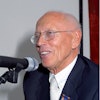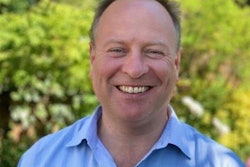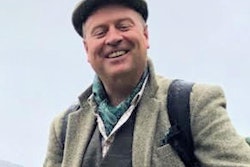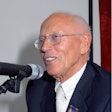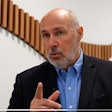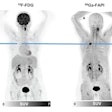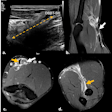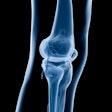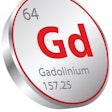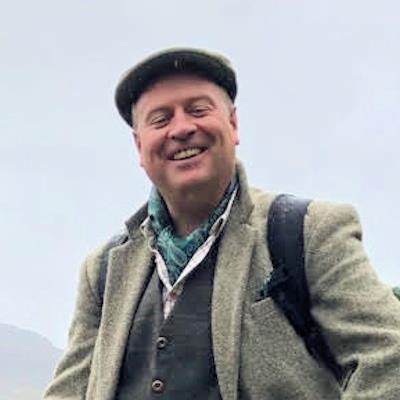
"There is no greater agony than bearing an untold story inside you." (Maya Angelou)
The above quote comes from the 1969 coming-of-age book, I Know Why the Caged Bird Sings. In this million-copy selling autobiography, U.S. poet and author Maya Angelou documents her early years. She tells how she used literacy and the power of words to help cope with her bewildering world, using books as a refuge from a traumatic life.
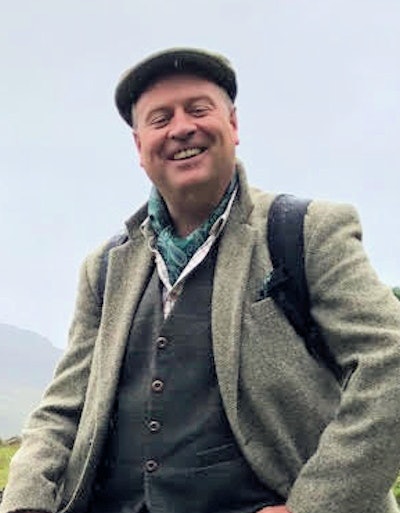 Dr. Paul McCoubrie from Bristol, U.K.
Dr. Paul McCoubrie from Bristol, U.K.I'd be lying if I said I'd shared the traumas of Angelou's life. By comparison, I feel pampered and distinctly privileged. But I do use books as a refuge. I've always loved losing myself in a good book. They've long been a salve for my soul. My idea of heaven is an endless library with a comfy chair. And possibly an always-full decanter of 18-year-old Glenlivet.
Despite my lack of true privations à la Angelou, I do find myself baffled more frequently than I'd care to mention. The practice of radiology is rather puzzling at times. In fact, the modern world is frequently perplexing. I used to sometimes wish that I lived in a simpler time. But, of course, simpler times don't exist. Simpler times are an illusion. They only exist when you don't understand how complex the world has always been.
The fractal of life
And so, as one grows older, the complexity of life reveals itself in all its fractal glory. I'm eternally curious. I've always enjoyed looking very hard at a common topic, viewing it from all angles and then trying to peel back the layers to see what lies beneath. It is amazing what you find. Just occasionally, I learn something new that is genuinely worthwhile; I understand something that has previously puzzled me. But more often, I learn that there is no single correct answer, just differing opinions.
Insight comes when you make genuine reasoned choices. Each increment in knowledge and each insight is a small step. Every one of these small steps is transformative. You aren't quite the same person afterward. These insights, these revelations, these considered thoughts are my untold stories. I share them like an excited child, eager to tell others. To bottle them up would be, in Angelou's words, agony -- hence my multiple columns.
Over the last seven years, my insights have crystallized out in the form of The Rules of Radiology. Regular readers will have noticed I've written 100 of these aphorisms. This coincided with a period of life in which I started ruminating more deeply than before. I think midlife crisis is a bit dramatic, but I will admit there has been an existential element to it. I wasn't depressed, but I was starting to burn out. This prompted me to wonder more and more about life.
I was telling this to an old pal, who nodded in recognition and said, "You begin to think more about your eulogy than your obituary." Obituaries are about your achievements. But achievements fade and disappear unless they were truly remarkable. Eulogies tell what sort of person you were and how you made other people feel.
A creative solution
I wanted a practical solution to this midlife dip. I needed something that wasn't illegal, fattening, or incompatible with staying married. Something creative, I reasoned. But I've not got an artistic bone in my body or any practical skill in my hands. Benjamin Franklin said, "If you would not be forgotten as soon as you are dead and rotten, either write things worth the reading or do things worth the writing." I chose the former. Given that my previous writings have been reasonably popular, it made sense to continue in the same vein by writing a book.
I decided to flesh out The Rules of Radiology into a book, turning each rule into a short chapter. That way, I reasoned that I could follow my own voice, writing with a degree of authenticity and authority. I wanted to produce the sort of book that I'd like to read but hadn't been written yet. There was no fanciful notion of producing a work of art. I just wanted to draw attention to niche facts, expose hypocrisies, reveal hidden truths, and tell a few decent jokes.
I should mention that I've no literary pedigree. My formal training ended with Ordinary Level English in 1987. I have written plenty of scientific prose -- including two 20,000-word dissertations (Intercalated BSc and Master of Education) -- but nothing creative or nonscientific, apart from 750-word columns every now and again. However, when you think about it, radiologists are ideally placed to write. We all produce huge volumes of text every day. A radiologist's output is prodigious. I calculated that each of us produces the equivalent of a PhD thesis every month.
Ernest Hemingway said, "Good writers are not born. They learn to write." Indeed, writing is like a muscle: The more you use it, the stronger it gets. So I thought that although it be might be hard initially, it'd get easier. I also read that to write a book you need the 3 Ds: drive, discipline, and desire. It is true. But I also read the corollary of this is that finishing a book is 3% effort and 97% not being distracted by the internet. This is also true.
The writing
So, in January 2019, I sat down and started with Rule #1 and started to write. Over the next 16 months, I consecutively wrote Rules #1-50 -- nearly 80,000 words in total.
Hemingway also said, "There is nothing to writing. All you do is sit down at a keyboard and bleed." Sometimes the text came easily, sometimes it was "... like drilling rock and blasting it out with charges." (Hemingway again). Facing a blank screen with a blank mind is tricky. But everything in life is can be written about if you have the self-belief and imagination.
Writing is a curious affair. It is necessarily solitary and lonely. It's also unbelievably time-consuming. When I retired to my study for an evening and managed a few hundred words before bedtime, I felt happy. When I read of various authors smashing out several thousand words a day, I felt utterly inadequate. There were times of intense self-doubt, particularly when one year in, I'd struggled to complete 60% of the rules.
Two things helped me finish the book. First was lockdown. Inspired by stories of Shakespeare writing King Lear during an outbreak of plague that closed the London theatres, I finished the last 15 chapters in just four months. The second crucial factor was critical friends that I'd sent the chapters to -- thanks to Barry, Giles, and Adrian -- and also my best editor, my lovely wife, who curbed much of the pomposity and gave me self-belief. Complements from one's spouse are always the holy grail of critical appraisal.
Getting it published
I won't bore you with the failed attempts to persuade publishers to take a punt on me. I must admit that after the eighth rejection, I was on the verge of giving up and going down the self-publishing route. But perseverance paid off. Melissa Morton at Springer believed my book had legs. After some furious editing, I submitted the manuscript in October. After 22 months, I was honestly glad to see the back of it.
The publication process, I am told, is an interesting next chapter. If all goes well, it should be available to purchase in February 2021. Then I must get around to writing Rules #51-100 ...
Dr. Paul McCoubrie is a consultant radiologist at Southmead Hospital in Bristol, U.K. Competing interests: None declared.
The comments and observations expressed herein do not necessarily reflect the opinions of AuntMinnieEurope.com, nor should they be construed as an endorsement or admonishment of any particular vendor, analyst, industry consultant, or consulting group.



